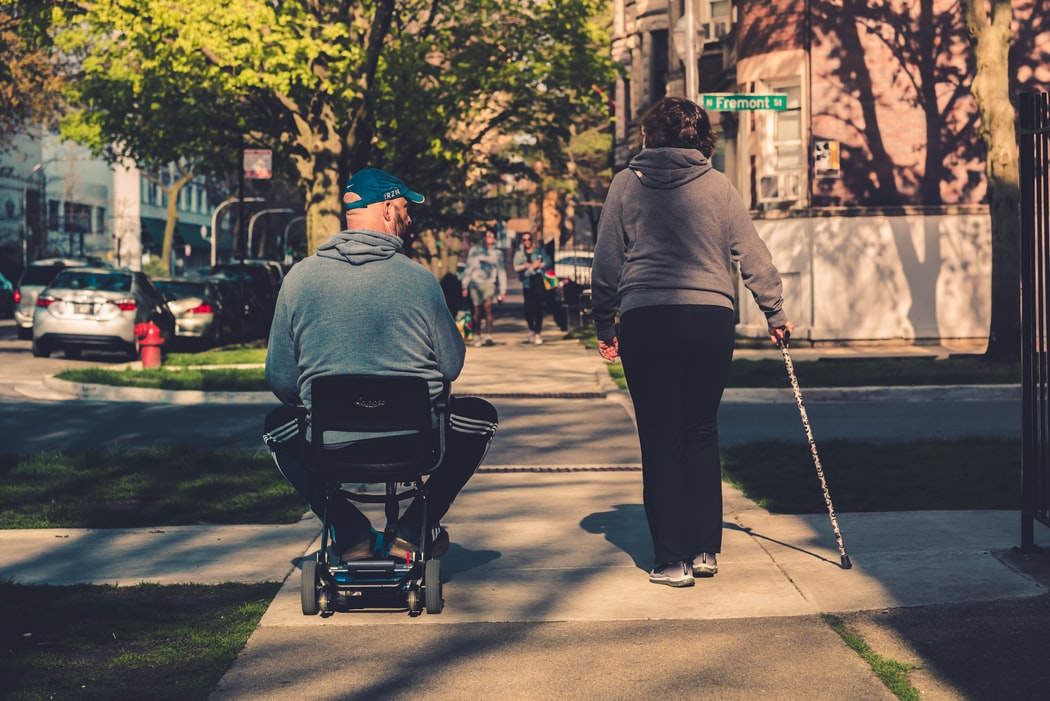Legal Liability and Pedestrians with Disabilities

Preventable accidents occur daily in Sacramento and throughout California, and the civil justice system plays a vital role in helping those harmed by the negligence of others receive compensation for their losses. In such cases, one of the crucial aspects of the legal process is establishing the "duty of care" that one party owes to another. This duty of care serves as the foundation upon which potential liability is assessed after an accident occurs. It involves comparing the responsible party's actions with what a "reasonable person" would have done in similar circumstances.
In California, as in many states, the duty of care varies based on the unique circumstances of the individuals involved. Consider, for instance, residents with disabilities, who may face distinct challenges when it comes to assessing their conduct and liability. These unique circumstances play a significant role in determining fault and ultimately ensure that those injured in accidents have a fair opportunity to recover their losses.
Duty of Care for Disabled Individuals
One important aspect of examining the duty of care involves understanding that not all residents are held to the same standard. Individuals with disabilities, such as blindness, are evaluated based on the level of care that would reasonably be expected from a person of ordinary prudence who has the same physical condition. This approach recognizes that individuals with disabilities may have different capabilities and limitations, and their conduct is assessed accordingly.
For example, consider a blind pedestrian. While pedestrians without disabilities are expected to exercise reasonable care while crossing the street or walking on sidewalks, blind pedestrians' actions are evaluated considering their unique circumstances. This approach ensures that individuals with disabilities are not unfairly burdened with a one-size-fits-all standard of care.
Driver's Duty of Care
When preventing accidents involving disabled pedestrians, the duty of care extends to drivers on the road. Drivers are responsible for exercising prudence and caution at all times, especially when encountering pedestrians with disabilities. For instance, individuals with hearing impairments rely on visual cues and may be unable to hear approaching vehicles. In such cases, drivers must be particularly vigilant, scanning the road for pedestrians in harm's way and taking appropriate precautions.
Furthermore, drivers owe an enhanced duty of care when aware of a pedestrian's physical impairment. For instance, pedestrians using a white cane or walking with a guide dog clearly indicate their disability. In such situations, drivers must exercise extra caution and take necessary steps to avoid injuring pedestrians. Failure to do so can result in legal consequences for the driver, as they may be held accountable for the harm caused to the disabled pedestrian.
The concept of duty of care in negligence cases involving disabled individuals is nuanced and takes into account the unique circumstances and vulnerabilities of those with disabilities. This approach ensures that individuals with disabilities are not unfairly treated and that they have the opportunity to seek compensation for injuries caused by the negligence of others. Both pedestrians and drivers need to be aware of these legal principles to promote safety on the roads and sidewalks, regardless of an individual's physical condition or abilities.
Editor's Note: updated 11.17.23 Photo by Max Bender on Unsplash























